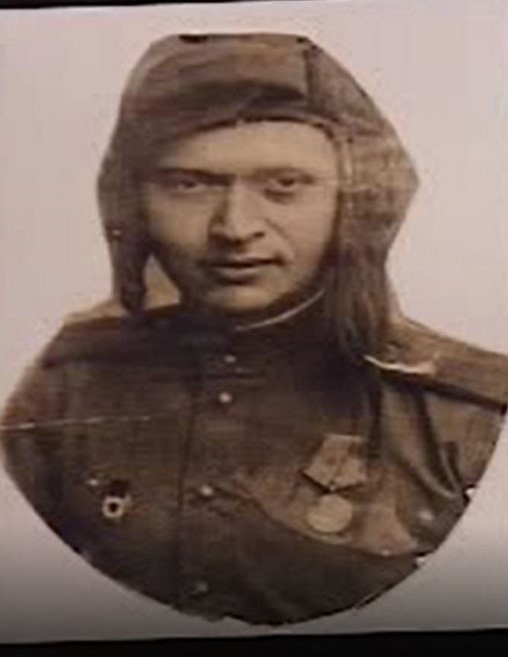Josif Levin was born in 1921 in the Polish town of Iwje (present-day Ivie, Belarus), as Yoysef Khayim Lewin, one of five children. His father Moyshe was a tradesman, and the family was deemed affluent. Despite his religiosity, the father sent Josif to a Polish school, arguing that Josif's Hebrew was good enough, and that he now had to master Polish. Nevertheless, after a fight with a non-Jewish pupil, Josif was expelled from the Polish school and forced to continue his studies at the local Hebrew school, which belonged to the Tarbut network. In the mid-1930s, Levin joined the local branch of Betar, an international rightwing Zionist movement.
In September 1939, World War II began, and the Soviets occupied Eastern Poland, including Iwje and its vicinity. The new authorities seized the large house where the Levins lived and moved them into a smaller one. They arrested Moyshe, Josif's father, as a capitalist, and he remained in the Soviet jail until late June 1941, when the German Army occupied Iwje. The Germans shot the Jewish intelligentsia of Iwje and herded the town's remaining Jews into a ghetto. Josif told his parents that he would rather kill himself than go to the ghetto. Josif was hidden in the boiler room of the public bathhouse by its Polish owner. Later, another neighbor, an ethnic Belorussian named Ivan Naidzin, seized the Levins' cow, but he also prepared two secret pits for Josif: one under his cowshed, for the winter months; and another in a nearby forest, for summertime. On several occasions during his stay in the forest, Josif got out of his pit and tried to join the Soviet partisans.
The partisans rejected him; in one case, they told him:
"We'd like to take you in, but you have neither weapons nor gold; go to your mother and ask her for some gold and weapons".1
In July 1944, Iwje was liberated by the Red Army. Josif emerged from his pit and came to the town. There, the Soviet military authorities accused him of being a deserter from the Red Army. Josif was tried before a court and sentenced to ten years in jail. However, because of the wartime conditions, he was sent instead to a penal battalion [shtrafbat]. On the sixth day of his service, Josif was wounded, and, according to the rules of the penal battalions, he was transferred to regular military service after a stay in hospital. Josif Levin was sent to a tank school. He saw action in Poland and Germany, was wounded again, and discharged from the military.
Of Levin's entire family, only his sister survived the Holocaust.
After his demobilization, Levin married. In 1948, the Soviets recalled that he had been a "deserter" and arrested him on trumped-up charges, including the accusation that he had been involved in the murder of Shlomo Mikhoels, a famous Soviet Yiddish actor who had actually been killed by the Stalinists in 1948. Levin spent five and a half years in Gulag camps, mainly in eastern Kazakhstan. After Stalin's death in 1953, Levin's case was "revised", and he was released from the camp. As a former Polish citizen, he asked for repatriation to Poland. As a result, he was rearrested in 1958 for some putative "economic crimes", and spent nine years in jail.
In 1973, Levin immigrated to the USA; in 1975, his daughter joined him in America, and his son did likewise in 1990. Levin maintained that he had been liberated not when the Red Army took over Iwje, but only at the moment he set foot on American soil. He is proud of the fact that he worked from the very first day of his arrival in the USA, being given his first job by a Hassidic community in New York City.
- 1. YVA O.93/5347







